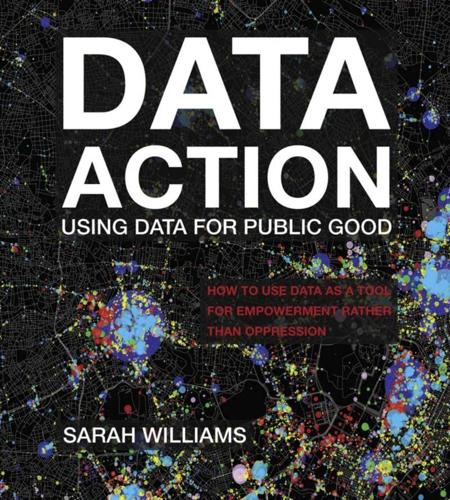data philanthropy
description: the practice of companies sharing data for public good or social causes
1 results

Data Action: Using Data for Public Good
by Sarah Williams · 14 Sep 2020
nonprofit organization established would be a great investment for funders, and ultimately private companies could also invest in the foundation as a form of philanthropy. Data Philanthropy There have been attempts to encourage private companies to see data sharing for a public good as a form of philanthropy and to make sharing
…
data a more altruistic gesture. The idea of data philanthropy originated in 2011with Robert Kirkpatrick of the United Nations Global Pulse, an initiative to accelerate the innovative use of big data for sustainable development and
…
the idea of “strategic leaking” proposed by Michael Nelson of Microsoft's technology futures.40 More generally, data philanthropy has come to involve donating data, whether by individuals or private companies.41 A great example of data philanthropy is the Data for Development (D4D) Challenge, put on by Orange, one of the largest telecoms
…
of philanthropy notwithstanding.44 Traditional forms of philanthropy help companies save money, and while Stampeck provides some suggestions on how this could be done in data philanthropy, companies simply have not picked it up. One of the biggest reasons appears to be privacy concerns. Mariarosaria Taddeo, Deputy Director of the Digital Ethics
…
Lab at Oxford, writes that data philanthropy is more complicated than it seems on the face of it. There are ethical concerns regarding sharing private data even if it is for a
…
can be used in ways harmful to society; and she calls out the moral ambiguity that, while data philanthropy might have a moral objective, giving away data may not always be morally upright or ethical. “Data philanthropy can only maintain its promise to foster morally good outcomes—e.g., advancing scientific knowledge, improving policy
…
of Corporate Philanthropy,” Harvard Business Review, July 24, 2014, https://hbr.org/2014/07/sharing-data-is-a-form-of-corporate-philanthropy. 45 Mariarosaria Taddeo, “Data Philanthropy and the Design of the Infraethics for Information Societies,” Philosophical Transactions of the Royal Society A 374, no. 2083 (December 28, 2016): 20160113, https://doi
…
New US System.” Guardian, August 8, 2016. https://www.theguardian.com/us-news/2016/aug/08/police-officer-related-deaths-department-of-justice. Taddeo, Mariarosaria. “Data Philanthropy and the Design of the Infraethics for Information Societies.” Philosophical Transactions of the Royal Society A 374, no. 2083 (December 28, 2016): 20160113. https://doi
…
DataKind 207 Data licensing 207–208 Data literacy 85–87, 168 data collaborations and 85–87 Local Lotto module 173 Data modeling, cities and 214 Data philanthropy 208–210 Data Pop Alliance (DPA) 210 Data practices, unjust xiii Data privacy xix, 135, 187–188, 194, 196–199, 221 Data Protections Direction 198